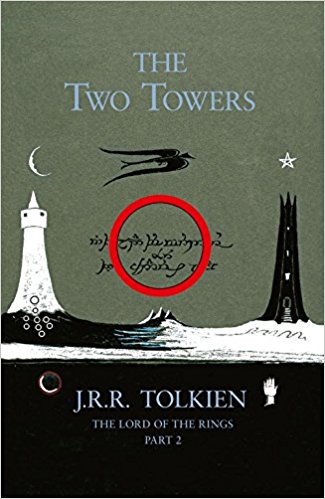Ahh. There’s nothing like kicking back in a comfy chair with a good series. While I am not a fast reader by any means, you might finish a book in one day and go right on to the second book. When you look at that cover, what are you thinking about? Are you expecting another exciting installment in the adventure? Are you anticipating it will be just as good as the first?
I’ll admit it. Every single time I pick up book two in a series, I have high hopes and expect it to be just as good as, if not better than, the first book. And I should seriously know better by now. Because almost every series I read has a major book two problem, especially trilogies. I’ve taken to calling book two (in any series) The Ugly Middle Child. No offense to all of you middle children out there, I’m sure you’re lovely and probably gorgeous.
 Whenever this topic comes up in conversation (which is often, you’d be surprised), I always come back to The Two Towers by J.R.R. Tolkien, book two in The Lord of the Rings trilogy. Why? Because it’s a perfect example of a book two done well, at least in my humble opinion.
Whenever this topic comes up in conversation (which is often, you’d be surprised), I always come back to The Two Towers by J.R.R. Tolkien, book two in The Lord of the Rings trilogy. Why? Because it’s a perfect example of a book two done well, at least in my humble opinion.
Why?
*Caution: spoilers ahead! I repeat: spoilers ahead!*
Important Things Happen
Gandalf is reincarnated as Gandalf the White. Ents! Shelob! F*ing Wormtongue! If you weren’t entertained by The Two Towers, then you might want to go back and re-read it. While it does what many book twos do — sets up everything for the end — it also deepens the characters by splitting them up to have individual quests. And boy are those quests cool. Some book twos simply exist to set up book three, and the author forgets to make the journey fun. They also forget to make sure crucial things happen in book two, which will make the climax of book three all the more wonderful.
The Introduction of an Integral Character
Gollum. He was whispered about in the first book and we knew him from The Hobbit, but in book two, we really get to see him. We learn his story and see his suffering. And for many of us, we had no idea what an important part he would play in the end. Now that’s how you set up an integral character.
Facing the Consequences of What Happened in Book One
In The Fellowship of the Ring, Boromir is overcome with the allure of the ring, and Frodo and Sam split off to go to Mordor alone. The consequences of this decision play out in the beginning of book two – Boromir is killed by Lurtz, the Uruk-hai leader. While the movie has Boromir die at the end of the first movie, the consequences of his actions are played out in the second book and in the second movie. When Frodo and Sam come across Faramir, Boromir’s brother, they expect the same ring-lust. However, Faramir must grapple with the truth of his brother’s death and resolve not to be like him. Real consequences and real decisions, which only pave the way to an explosive book three.
Too often, book twos feel slow and sloggy, and only serve the purpose of setting up book three. Let us take Tolkien’s example of what a good book two looks like: one full of action, intrigue, important character building, fun, the introduction of integral characters, and making sure the characters face the consequences of their actions from book one, making them stronger and all the more ready to face their ultimate battles in book three.
What do you think? If you liked The Two Towers, what did you like about it? Why was it successful as a book two? Any more examples of a book two done well? I’d love to read about it!
